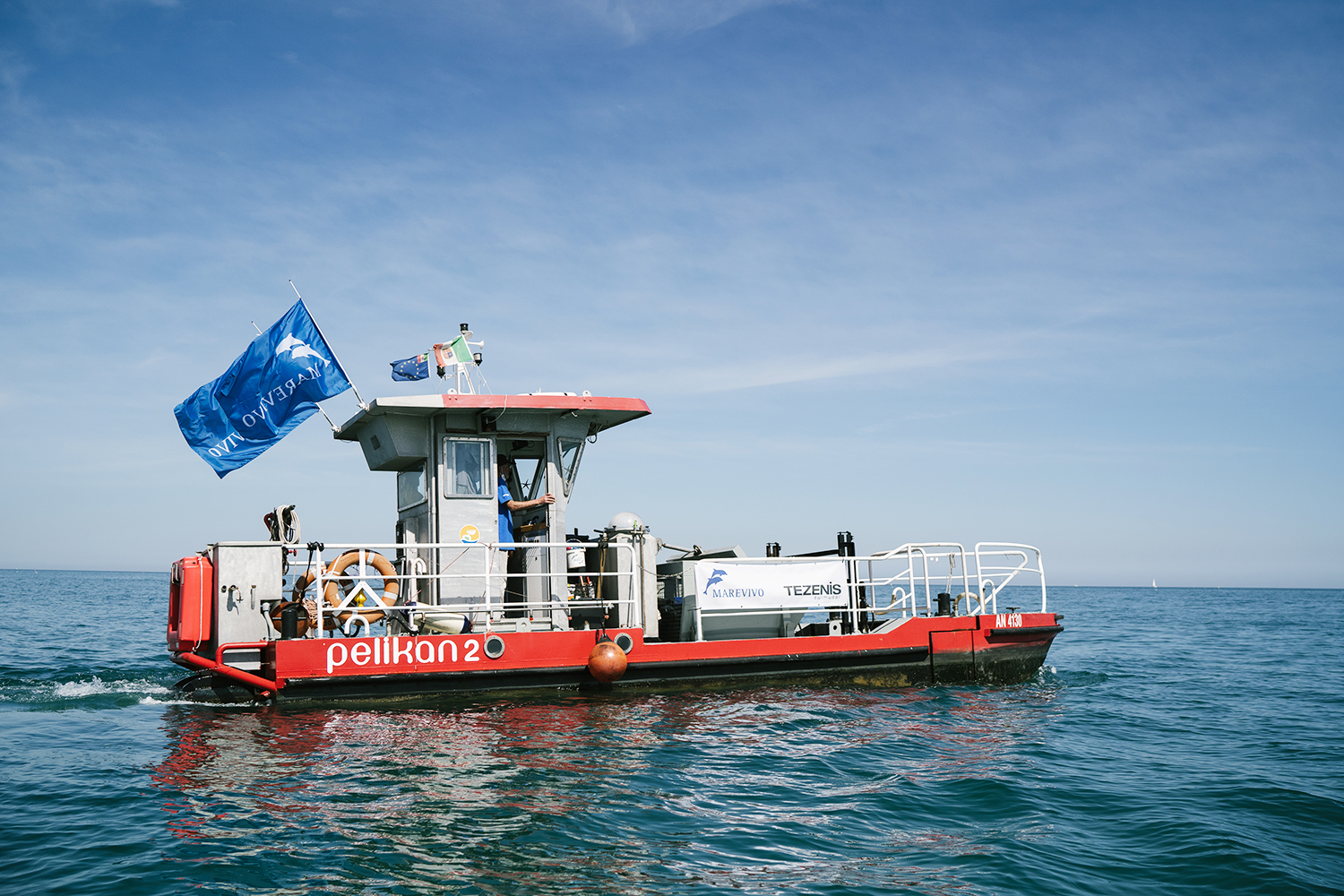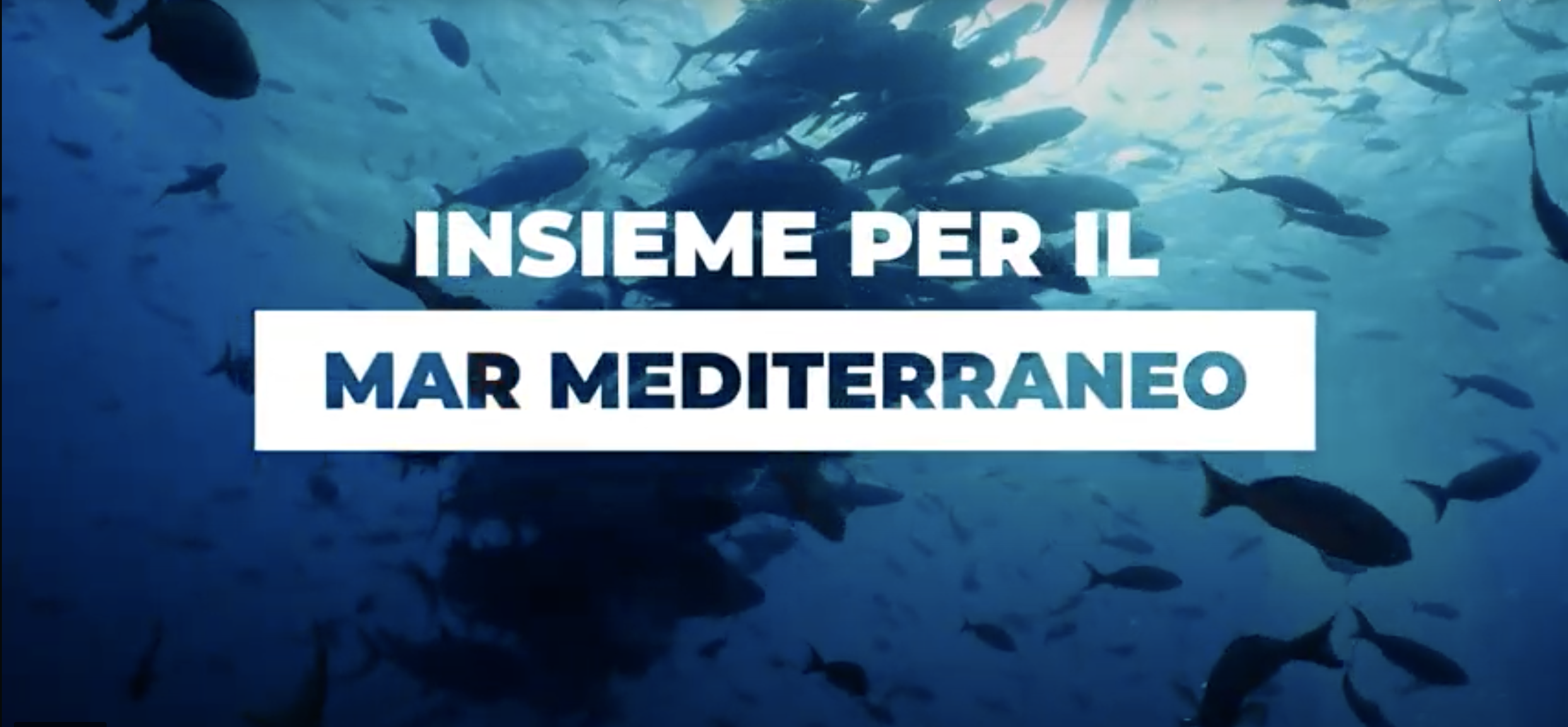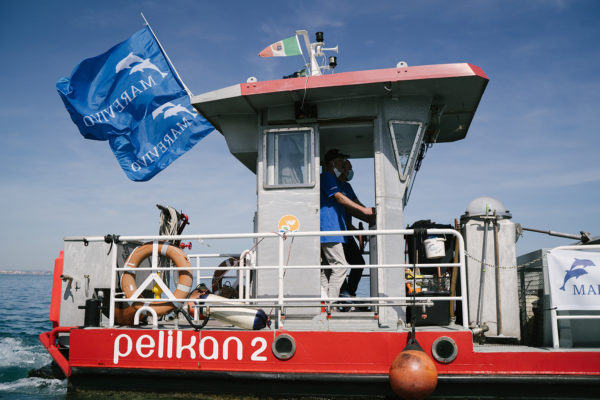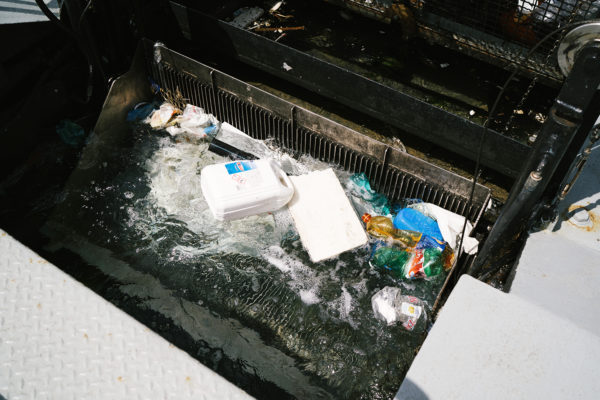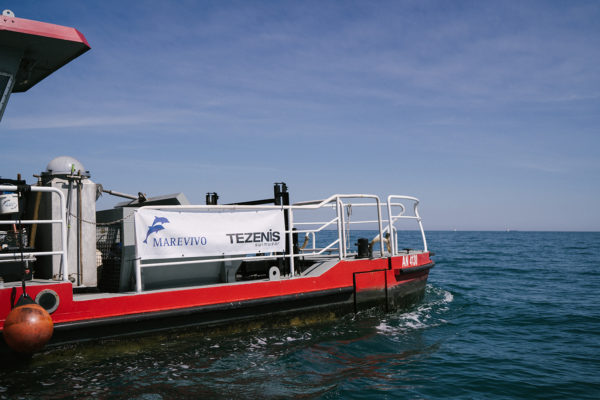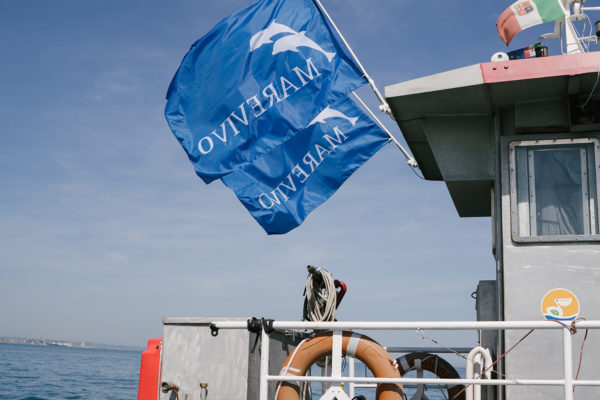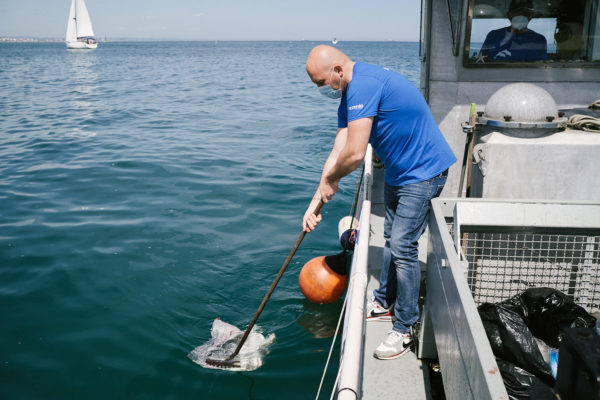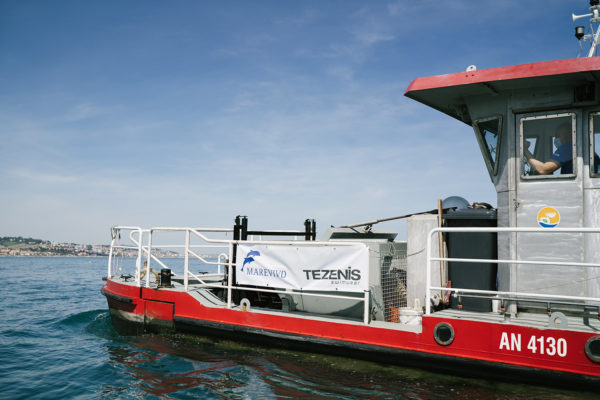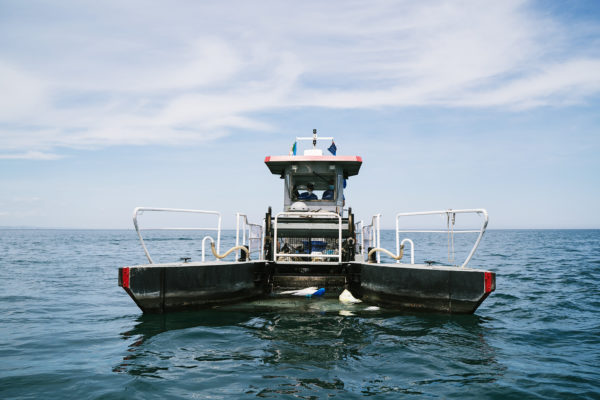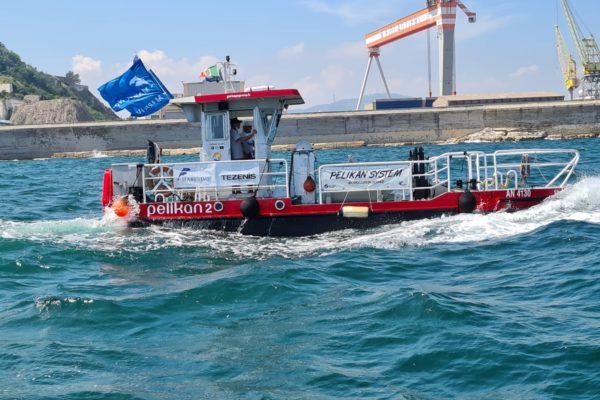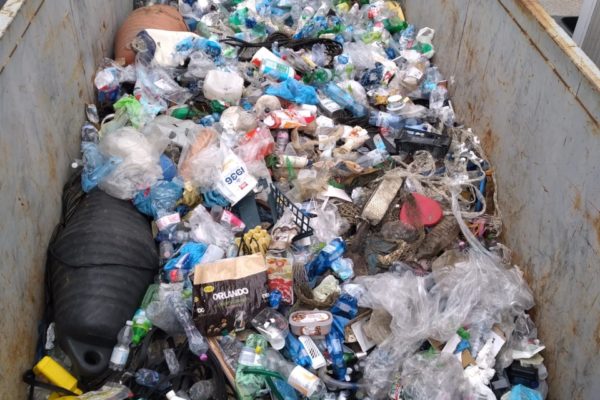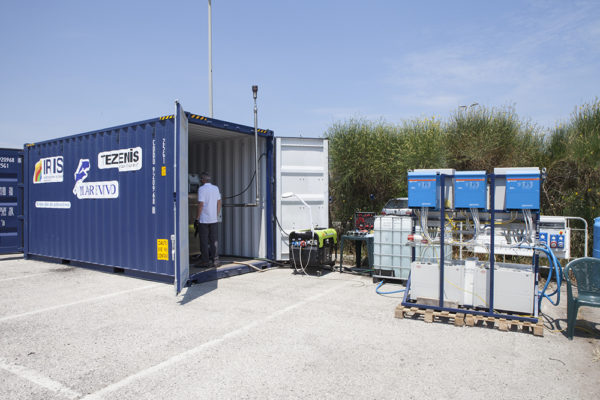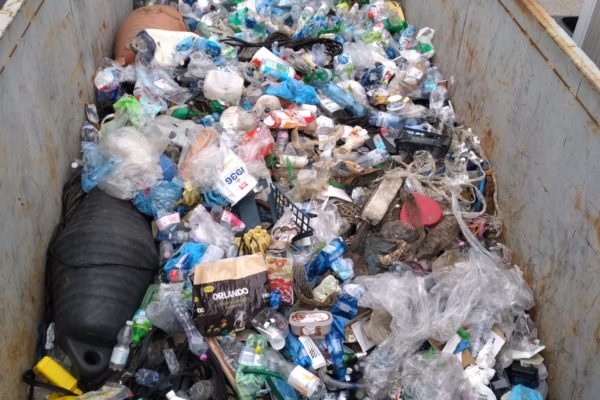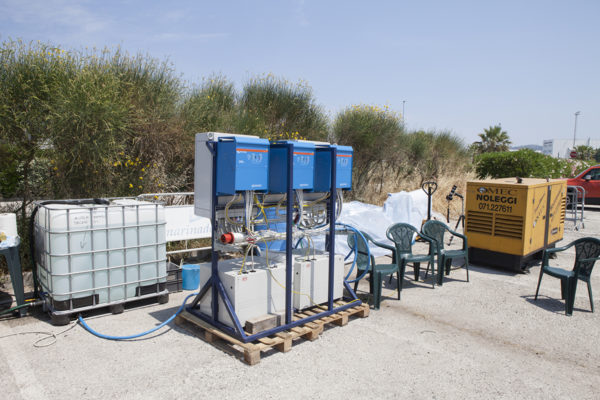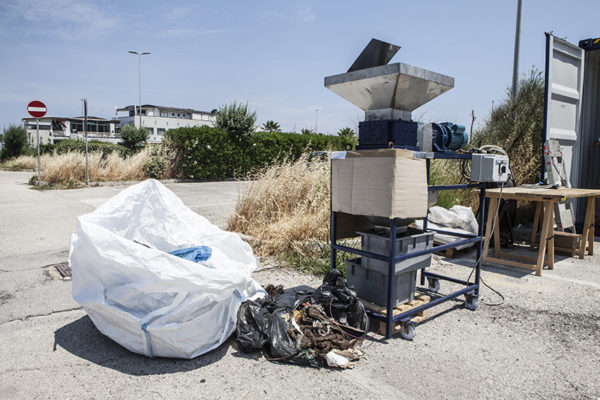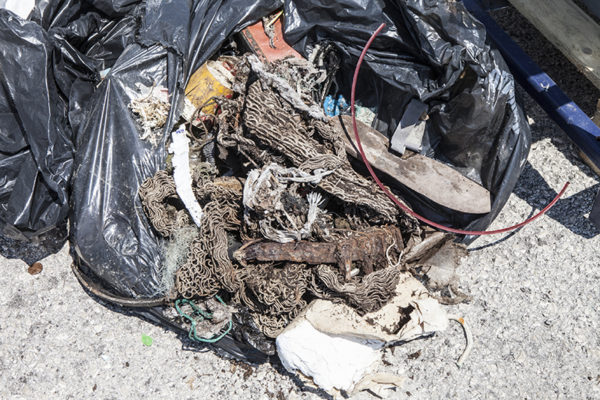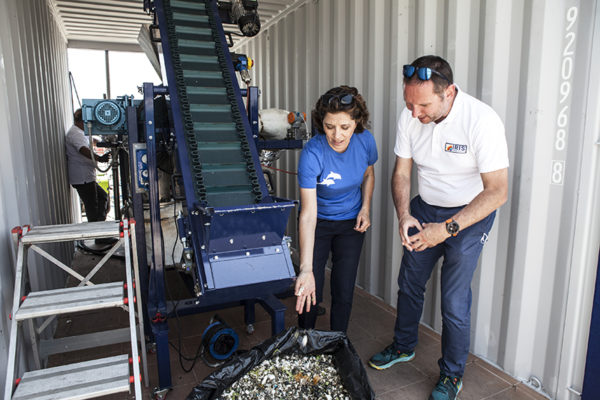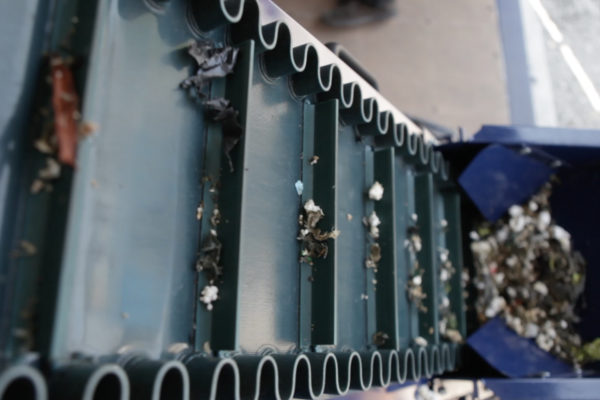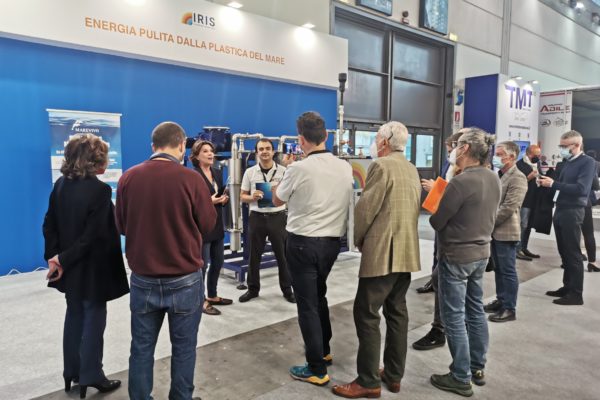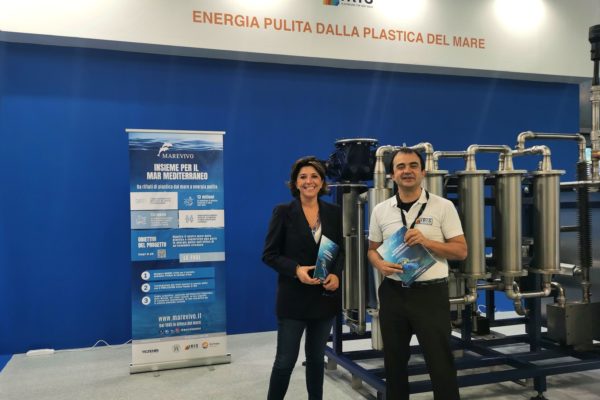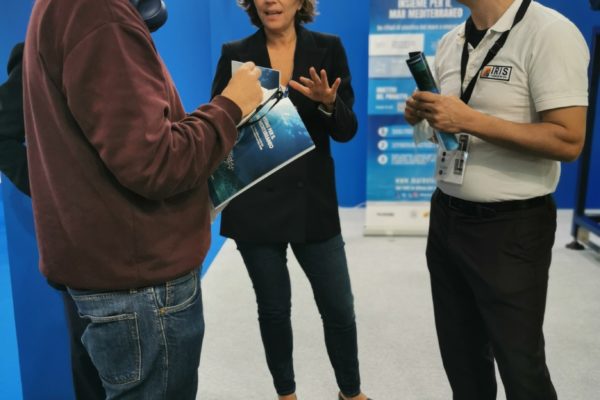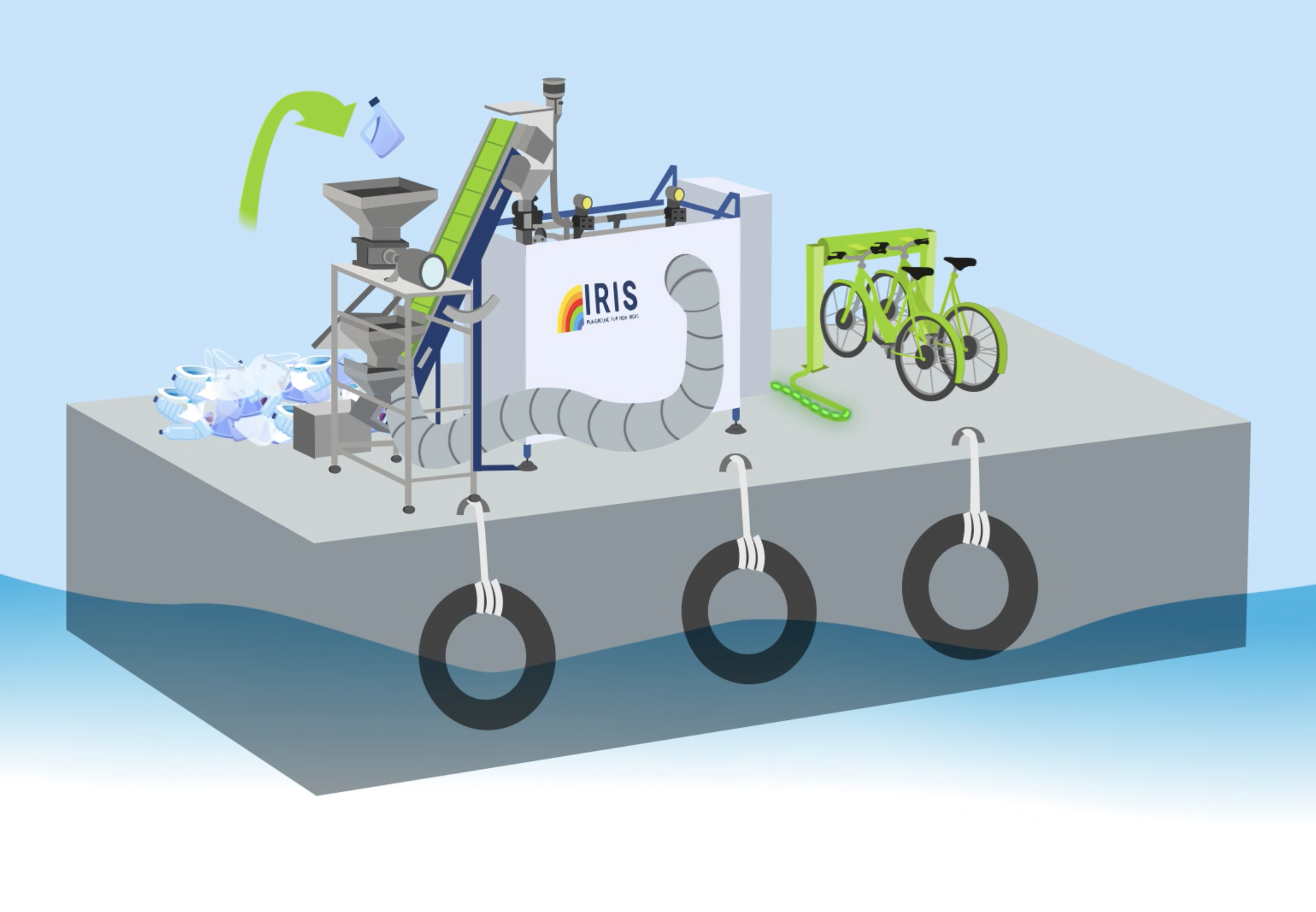FROM PLASTIC WASTE TO CLEAN ENERGY
What the project consists of
Together for the Mediterranean Sea is Marevivo’s initiative with the support of TEZENIS, aimed at cleaning our sea of plastic waste to ensure an increasingly plastic-free future. The goal, however, is not only the recovery of Marine Litter but the maximum valorization of plastic waste, according to innovative technologies and standards that can set an example for proper waste management and provide a solution to be integrated on all levels of society. More than 10,000 kilograms of plastic waste have been recovered from the Mediterranean Sea and, through an experimental activity, a part of it has been converted into electricity from a circular economy perspective.
The sea makes up 71 % of the planet’s surface. The health of the sea is critical to the control of climate change, and plastic is one of the threats to the balance of this ecosystem. Due to poor “management”, about 8-13 million tons of plastics end up in the sea each year.
The Mediterranean Sea is an enclosed basin where currents return 80% of waste to the coast. Fishing lines, fishing nets, bags, bottles, bottles, and more: large pieces of plastic injure, strangle, and often cause the death of animals such as sea turtles and seabirds.
There are 134 species including fish, birds, turtles, and marine mammals that are victims of plastic ingestion in the Mediterranean Sea resulting in blockage of gastrointestinal tracts, and physical and mechanical damage to respiratory and locomotion systems.
This plastic reaches even us: we ingest an average 5 gr of plastic weekly, equivalent to a credit cart!
THE ACTIVITIES OF THE PROJECT
THE FIRST PHASE
Thanks to the activities of Garbage Group’s “Pelikan” eco-boats that patrolled a 240,000,000 sq. m. expanse of harbors, coasts, and river mouths to recover tons of plastic waste, more than 10,000 kg of plastic was collected from the sea, saving the sea the equivalent to the weight of 1 million plastic bottles.
Pelikan’s eco-boat
THE SECOND PHASE
The second phase of the project involved, through an experimental activity, the conversion of part of the recovered waste into electricity and heat thanks to the Green Plasma device developed by IRIS: this system is based on the use of thermochemical conversion technology that, thanks to the high temperatures reached (up to 5000° C), allows any organic compound to be transformed into gas, separating it from the inorganic matrix. The gas is then converted into electricity and heat: the entire treatment takes place in the absence of oxygen, without combustion, so the waste does not burn and does not produce ash or harmful emissions, allowing the waste to be transformed into a valuable resource without any further negative impact on the environment by triggering a virtuous circular economy mechanism.
The Iris Pyrolizer

“Through years of research and development, we have arrived at a safe, efficient and compact solution that turns waste into a resource. Now we have an even bigger challenge ahead of us: to use our patented Green Plasma system to develop circular economy projects, with the goal of accelerating the transition to a waste-free world, combining mitigation and prevention into one innovative service for coastal communities and all isolated settings that need to be self-sufficient.”
Manuel Lai, CEO of IRIS
THE THIRD PHASE
The third phase of the project involved a study and analysis in order to provide useful data for research in the field. In fact, the project was supported by a scientific study carried out by the Department of Life and Environmental Sciences (DiSVA) of the Università Politecnica delle Marche in Ancona, a National study hub for these issues, which conducted the chemical characterization of the waste collected from the sea, its ability to concentrate and transport contaminants, and the impacts on organisms and the trophic network. In addition, the study analyzed the specific energy yield for different plastics collected from the sea, from the energy value of individual materials defining the energy value of an entire beach to be cleaned up and introducing a new indicator for sustainability models of environmental recovery actions.
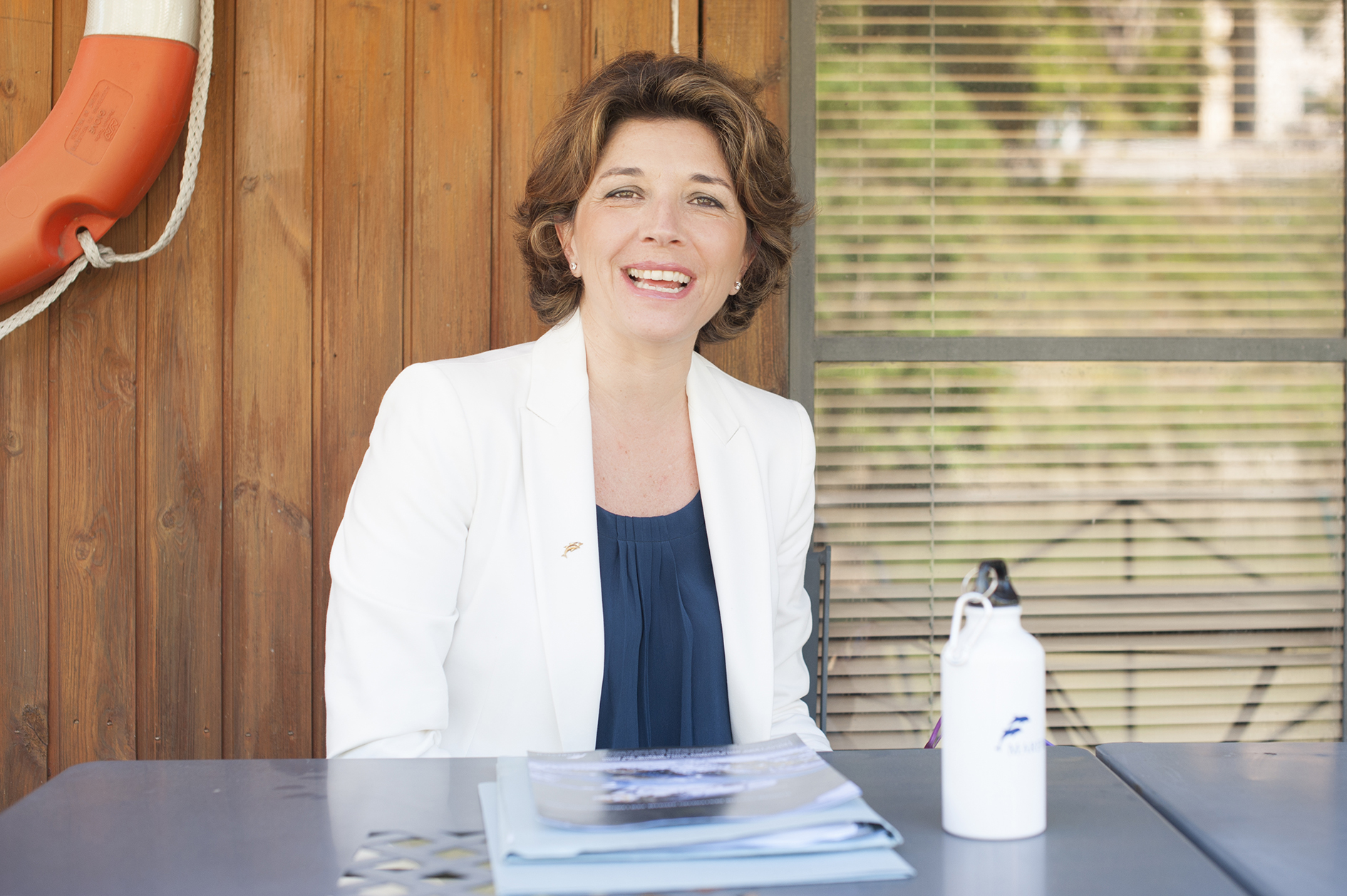
“This is an extremely ambitious and innovative project that will save tons of plastic waste at sea and, thanks to the use of newly available technologies, experiment with their use in a circular economy path.” Pyrolytic technology will be applied to plastics collected from the sea without cleaning treatments, thus avoiding possible pre-treatment costs necessary for many other solutions, combining cleaning, recovery, and environmental valorization activities without generating waste, but rather turning it into a resource for energy recovery.”
Raffaella Giugni, Institutional Relations Manager of Marevivo
Marevivo with Iris in Ecomondo
Want to know more?
The Green Plasma
How the conversion of part of the recovered waste into electricity and heat is done by the device developed by IRIS
The phases of the project
A summary video of the activity’s actions





